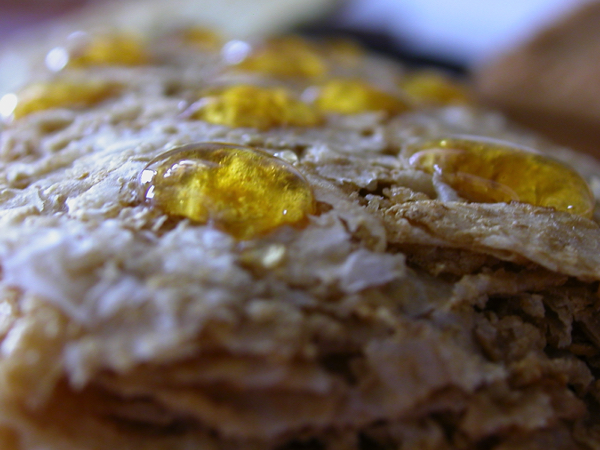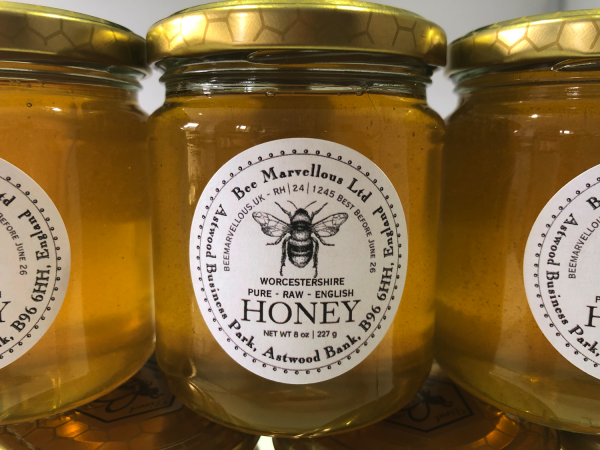
Honey, often celebrated as nature’s sweetener, is a remarkable natural product crafted by bees from the nectar of flowers. In the UK, where local honey is cherished for its rich flavours and regional varieties—think heather honey from the Scottish Highlands or wildflower honey from the English countryside—it’s also recognised for its potential health benefits. These benefits are partly attributed to its nutritional content, including vitamins. While honey isn’t a major source of vitamins compared to fruits, vegetables, or supplements, it does contain trace amounts of certain vitamins that contribute to its nutritional profile. This article delves into the vitamins present in honey, their quantities, roles in the body, and the factors influencing their presence, offering a comprehensive understanding of this golden elixir’s value.
The Nutritional Composition of Honey
Before exploring the specific vitamins in honey, it’s worth understanding its broader nutritional makeup. Honey is primarily composed of sugars, with approximately 38% fructose, 31% glucose, and smaller amounts of other carbohydrates like maltose and sucrose. Water constitutes about 17–20% of honey, depending on its type and processing. Beyond these primary components, honey contains minor amounts of enzymes, amino acids, organic acids, minerals, antioxidants, and vitamins. These trace nutrients, though present in small quantities, contribute to honey’s reputation as a health-promoting food in British diets, often enjoyed in tea, on toast, or as a natural remedy for colds.
The vitamin content in honey is relatively low compared to nutrient-dense foods like kale or oranges, but these vitamins still play a role in its nutritional benefits. The exact vitamin profile varies depending on factors such as the floral source (e.g., borage honey from East Anglia or clover honey from Wales), geographical origin, processing methods, and storage conditions. Below, we explore the key vitamins found in honey, their functions, and their approximate quantities, with a focus on their relevance to UK consumers.
Vitamins Found in Honey
1. Vitamin C (Ascorbic Acid)
Overview: Vitamin C is a water-soluble vitamin and a potent antioxidant, known for supporting immune function, collagen synthesis, and tissue repair. It also aids iron absorption and protects cells from oxidative stress, which is particularly relevant in the UK’s often damp and cold climate, where immune health is a priority.
Presence in Honey: Honey contains small amounts of vitamin C, typically ranging from 0.5 to 5 milligrams per 100 grams, depending on the honey’s floral source and processing. Raw, unprocessed honey—popular among UK consumers at farmers’ markets or from local beekeepers—tends to have higher levels of vitamin C compared to heat-treated or filtered varieties, as heat can degrade this sensitive vitamin.
Health Benefits: Even in trace amounts, vitamin C in honey contributes to its antioxidant properties, helping to neutralise free radicals. While the quantities are insufficient to meet daily vitamin C requirements (40 mg per day for adults, as per UK NHS guidelines), they can complement other dietary sources like citrus fruits or berries, which are staples in British diets.
Factors Affecting Content: The vitamin C content in honey is influenced by the nectar source—honey from plants like hawthorn or blackberry, common in the UK, may have slightly higher levels. Processing methods, such as pasteurisation, commonly used in supermarket honeys, can reduce vitamin C content. British consumers opting for raw honey from local producers, such as those in the Cotswolds or Yorkshire, may benefit from slightly higher vitamin C levels.
2. B Vitamins
Honey contains several B vitamins, though in very small amounts. These include:
- Vitamin B2 (Riboflavin): Riboflavin is essential for energy production, cellular function, and metabolism of fats. Trace amounts in honey (approximately 0.01–0.04 mg per 100 grams) add to its nutritional profile.
- Vitamin B3 (Niacin): Niacin supports energy metabolism, DNA repair, and skin health. Honey provides about 0.1–0.4 mg per 100 grams.
- Vitamin B5 (Pantothenic Acid): This vitamin is crucial for synthesising coenzyme A, involved in fatty acid metabolism. Honey contains roughly 0.05–0.1 mg per 100 grams.
- Vitamin B6 (Pyridoxine): Pyridoxine aids in amino acid metabolism and red blood cell production. It’s present in honey at levels of about 0.01–0.08 mg per 100 grams.
- Vitamin B9 (Folate): Folate is vital for DNA synthesis and cell division. Honey contains trace amounts, typically less than 0.01 mg per 100 grams.
Health Benefits: The B vitamins in honey support energy metabolism and cellular function, which are important for maintaining energy levels, especially during the UK’s long winter months. However, their concentrations are minimal, so honey isn’t a primary source. Pairing honey with B-vitamin-rich foods like wholemeal bread or leafy greens, common in British diets, can enhance its contribution.
Factors Affecting Content: The B vitamin content depends on the pollen and nectar sources. Honeys from UK plants like clover or heather may have slightly higher levels if sourced from nutrient-rich environments. Processing, such as pasteurisation, can reduce these vitamins due to their heat sensitivity, so raw British honeys are preferable for maximising B vitamin content.
3. Vitamin K
Overview: Vitamin K is a fat-soluble vitamin essential for blood clotting and bone health, available in forms K1 (phylloquinone) and K2 (menaquinone). It’s particularly relevant for maintaining bone density, a concern for ageing populations in the UK.
Presence in Honey: Vitamin K is present in honey in trace amounts, often less than 0.01 mg per 100 grams, likely due to pollen residues.
Health Benefits: The small amounts of vitamin K in honey are unlikely to significantly contribute to daily requirements (1 mcg per kg of body weight daily, as per UK guidelines). However, they may support clotting and bone health alongside other sources like spinach or broccoli, which are widely consumed in the UK.
Factors Affecting Content: The vitamin K content varies with the pollen content, influenced by plants foraged by bees, such as those in British meadows or hedgerows. Raw, unfiltered honey from local UK producers may retain more vitamin K than processed varieties.
4. Other Vitamins
Honey does not contain significant amounts of other vitamins, such as vitamins A, D, or E, in measurable quantities. These vitamins are more abundant in foods like oily fish or dairy, which are key components of a balanced UK diet, as recommended by the NHS Eatwell Guide.
Factors Influencing Vitamin Content in Honey
Several factors affect the vitamin content in honey, which are particularly relevant for UK consumers seeking high-quality, nutrient-rich honey:
- Floral Source: The type of plants bees forage from significantly impacts vitamin content. In the UK, honeys from heather, clover, or wildflowers, common in regions like Devon or the Lake District, may have different vitamin profiles compared to imported honeys.
- Processing and Storage: Raw, unprocessed honey, increasingly popular at UK farmers’ markets and health food shops, retains more vitamins than pasteurised or filtered honey. Storage conditions, such as exposure to light or heat, can degrade vitamins like C and B.
- Geographical Origin: Local UK honeys, produced by small-scale beekeepers, often have unique nutritional profiles due to regional flora. For example, Scottish heather honey may differ from Welsh borage honey in vitamin content.
- Seasonal Variations: The time of year and weather conditions in the UK can influence nectar quality, affecting the trace vitamin content in honey.
Practical Considerations for UK Consumers
For those in the UK looking to incorporate honey into their diet for its vitamin content, here are some tips:
- Choose Raw Honey: Opt for raw, unprocessed honey from local beekeepers or trusted UK brands to maximise vitamin content. Look for products labelled “raw” or “unpasteurised” at farmers’ markets or stores like Holland & Barrett.
- Support Local Producers: Buying honey from British beekeepers, such as those in rural areas like Cornwall or Norfolk, supports sustainable practices and ensures fresher products with potentially higher vitamin levels.
- Store Properly: Keep honey in a cool, dark place to preserve its vitamin content, as exposure to heat and sunlight can degrade sensitive nutrients like vitamin C.
- Use as a Complement: Given the trace amounts of vitamins, use honey as part of a balanced diet alongside vitamin-rich foods like fruits, vegetables, and whole grains, as per NHS recommendations.
Conclusion
While honey is not a primary source of vitamins, it contains small amounts of vitamin C, various B vitamins, and traces of vitamin K, which contribute to its status as a health-promoting food in the UK. The vitamin content, though modest, complements honey’s antioxidant and antimicrobial properties, making it a valuable addition to a balanced diet. For UK consumers, choosing raw, locally sourced honey from trusted producers ensures the highest possible nutrient retention, supporting both health and local economies. Whether drizzled over porridge, stirred into tea, or used as a natural sweetener, honey remains a cherished part of British culinary tradition, offering a touch of nutritional goodness with every spoonful.
